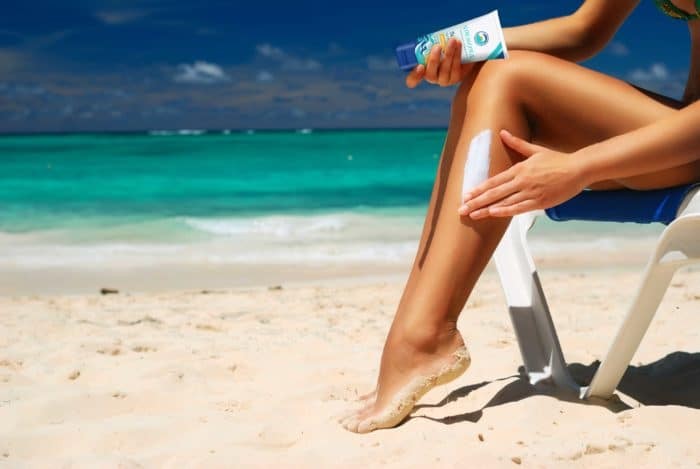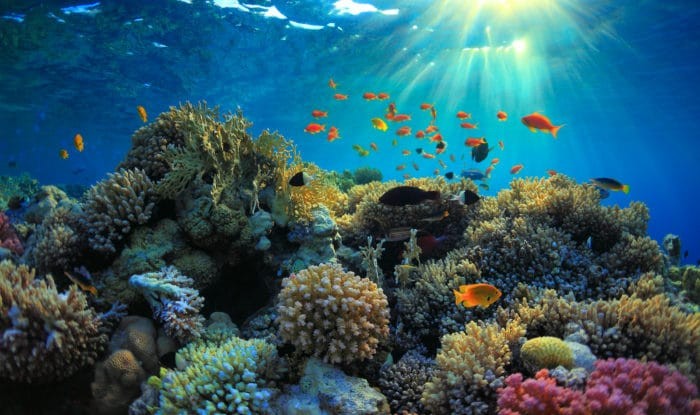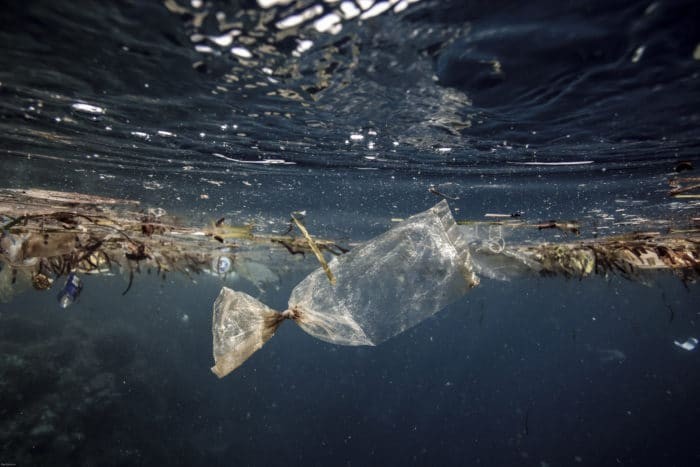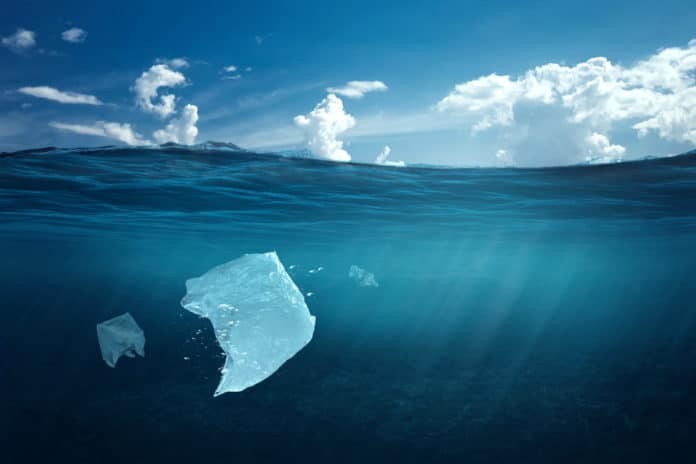As freedivers, we are the ocean’s ambassadors. Non-divers see us in the water with our impressively long fins, brightly-colored buoys, and are shocked at how deep we manage to go. They may imitate our behavior in the water, or even start asking us questions about freediving, which we can use as an opportunity to share our knowledge on becoming more environmentally-friendly to our oceans. Freedivers also spend more time underwater than non-divers and have more contact with corals and marine life. There are things we can do to be kinder to our beloved ocean and knowledge we can spread to help everyone else be kind to it as well.
Use reef-friendly sunscreen

Whether you are a freediving instructor spending your days in the ocean or just training to improve your freediving skills, you most likely use sunscreen to protect yourself from the sun’s harmful rays (and an unsightly mask tan). The choice you make when choosing which sunscreen you use impacts the coral around you, so choose wisely as an environmentally-friendly freediver. Check the ingredients in the sunscreen you buy, even if it is labeled “reef-safe.”
Avoid sunscreens that use:
- Oxybenzone (Benzophenone-3, BP3)
- Octinoxate (Ethylhexyl Methoxycinnamate)
- Butylparaben
- 4-Methylbenzylidene camphor (4MBC)
These ingredients are slathered onto your skin, washed off in open water or in the shower, and then proceed to diminish corals’ resistance against bleaching, damage their DNA, and harm their development. Sunscreens that claim to be “reef-safe” are unregulated, so make sure to check the ingredients yourself to confirm. You can also use less sunscreen by staying in the shade, wearing a hat or shirt in the sun, a rashguard in the water, and avoid being in direct sunlight during peak sun hours.
Avoid touching marine life
Most sea creatures have very thin and delicate skin, covered by a layer of mucus. This mucus protects the sea creature from dehydration and infections. When we touch marine life, even with gloves on, we are ridding their skin of this protective mucus, in turn exposing it to the possibility of contracting a skin disease. Even when you have good intentions and just want to pet a sea creature or feel closer to it, it does not harm the creature any less. Remember also that certain sea creatures are poisonous or will attack when provoked, and can cause great harm or injury to you. This is why it is important to keep your hands to yourself while freediving and watch your fins.
Avoid touching corals

Fun-diving freedivers may feel comfortable touching hard corals to hold themselves in place while diving, and even more so if they have gloves on. Hard corals seem very tough, almost invincible structures, but in reality, they have a very thin and fragile protective membrane covering them. This membrane can easily be perforated, even by a single touch, which results in the coral becoming exposed to infection. Touching coral (or not paying attention to your bottom weight) also increases the likelihood of it breaking off. If a simple touch can do this, imagine what standing and sitting on them do to these corals; make sure to spread awareness and educate fellow divers and the people you see treating coral carelessly.
These corals are not just there to make dive sites look more picturesque, corals are also important to fishing and tourism economy, air quality, the ocean’s food web, erosion control, and help provide modern medicine, which is why we should exert our best efforts into caring for and protecting these pristine structures.
Pick up trash

It seems like there is so much trash in the ocean already (an estimated 5.25 trillion pieces of plastic debris, according to National Geographic), along with the trash that is being washed in by the rain or thrown in by people every day. It can seem hopeless to think that one person can make a difference just by picking up various pieces of garbage floating in the ocean or on a beach. But imagine if every certified diver (freediver, scuba diver, tech diver, etc.) committed to taking out the trash that they find in the ocean. It does not take much to attach a mesh bag to your training buoy and collect the litter floating by you. If you want to do more, join or organize a local clean-up, whether it is a competition to see who brings back the most amount of trash for divers or a beach clean-up for non-divers.
Final Thoughts
The ocean is not our home; every time we visit the underwater world, we are its guests. As guests, we have certain responsibilities and need to behave in a particular manner in order to be respectful. Would you randomly walk into a stranger’s house, go around touching their things, hold them underwater where they cannot breathe, leave trash everywhere, and start randomly petting their children?
No!
So as the ocean’s ambassadors, freedivers have the responsibility of being kind to our ocean, and respectful to all the life it contains. We sign an unofficial contract when we become freedivers, and to honor that contract, it is our duty to spread awareness and to stop inappropriate behavior when we see it.

